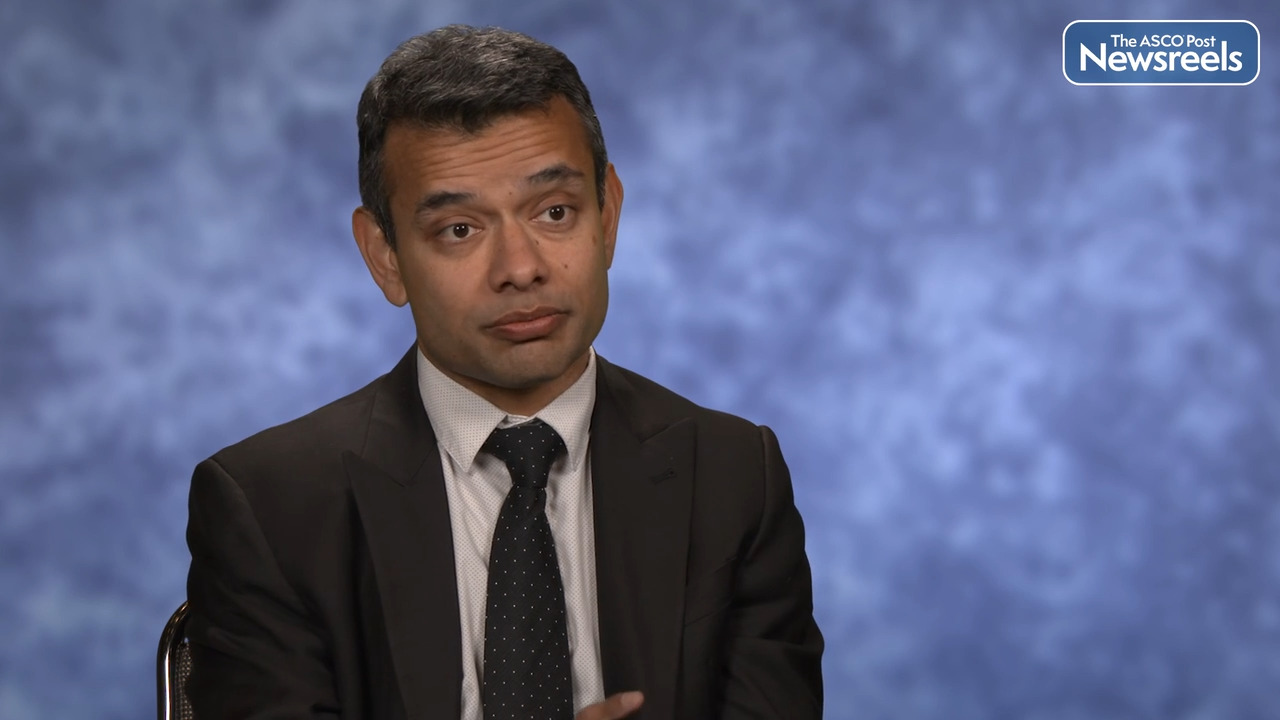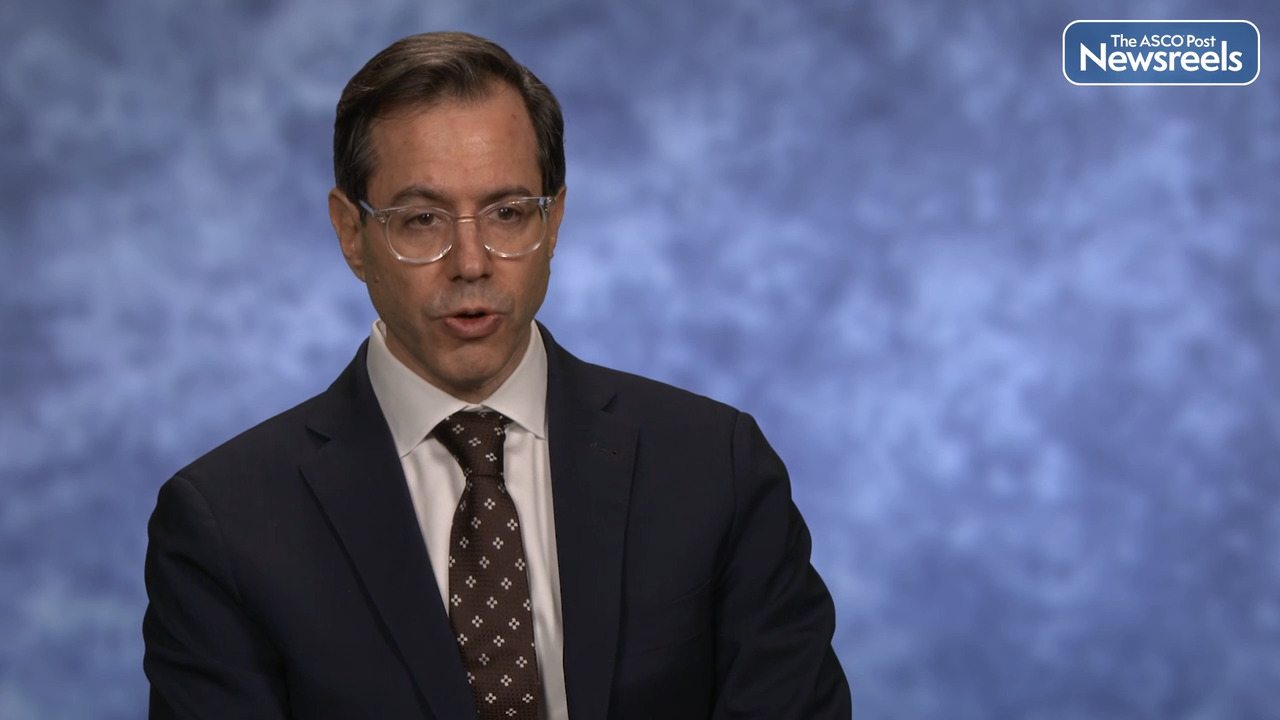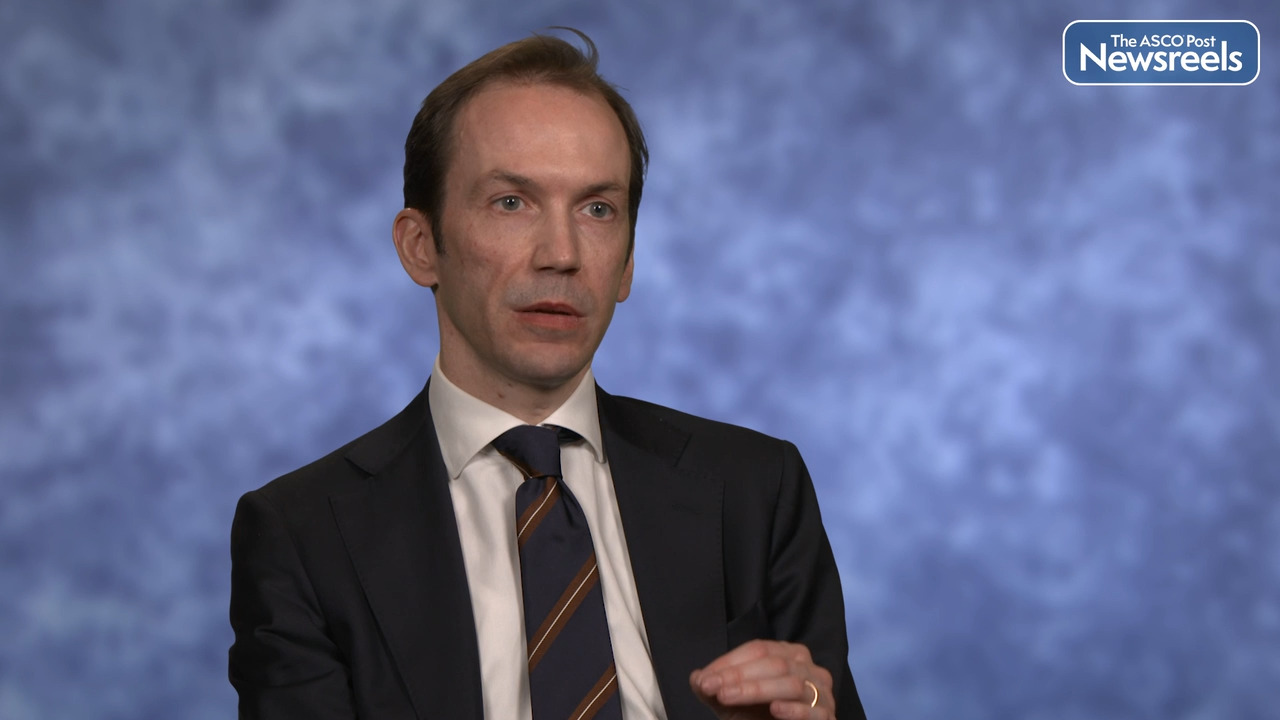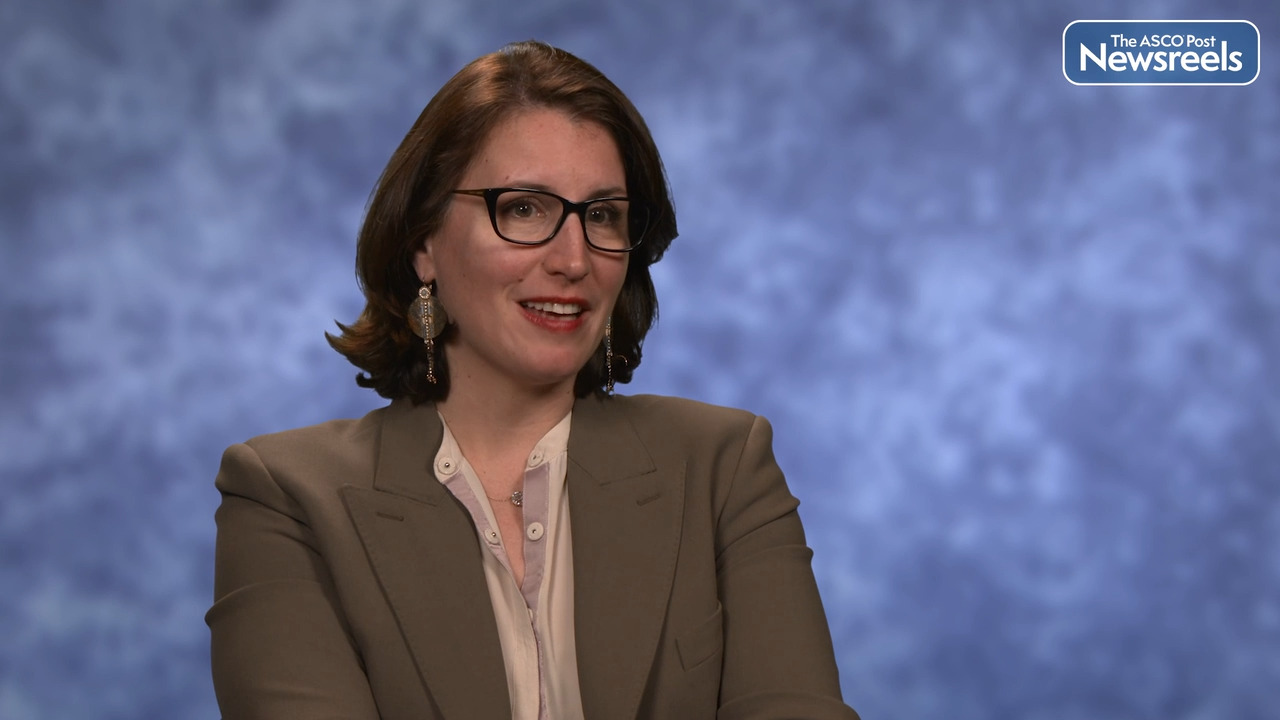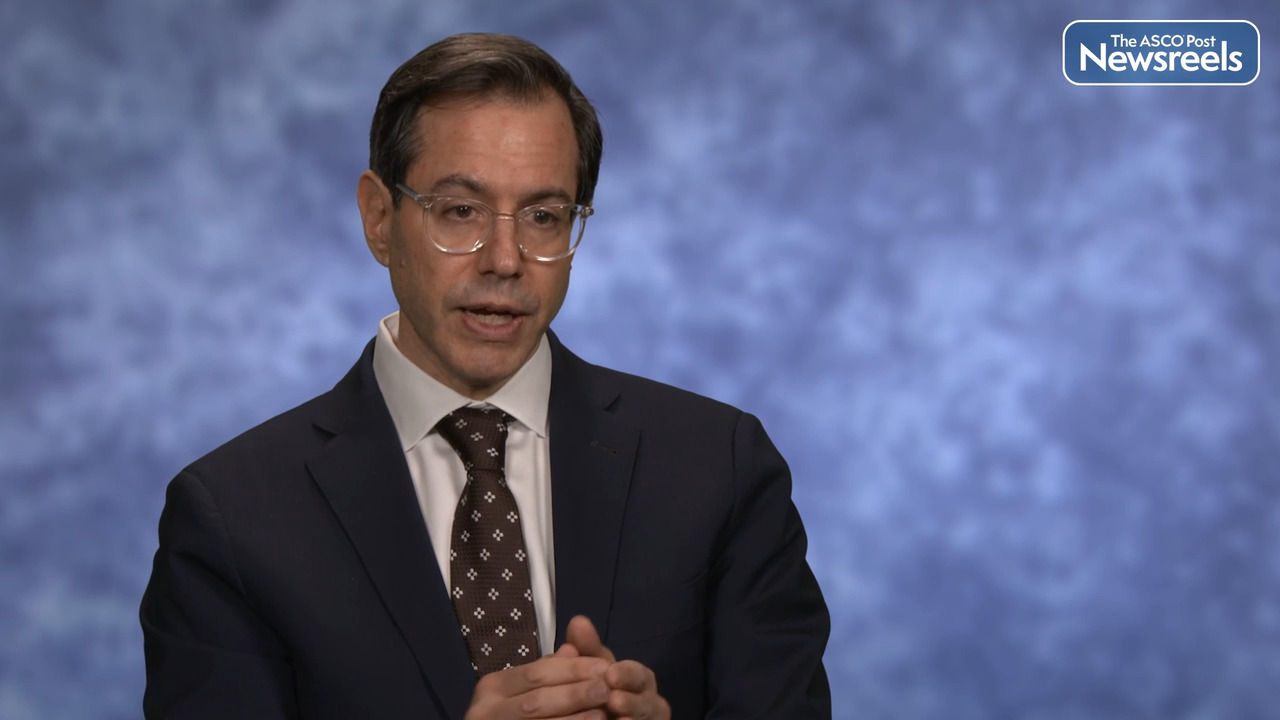Aristotelis Bamias, MD, on Urothelial Carcinoma: Final Overall Survival Analysis of Atezolizumab Monotherapy vs Chemotherapy
2023 ASCO Genitourinary Cancers Symposium
Aristotelis Bamias, MD, of the National and Kapodistrian University of Athens, discusses results from the phase III IMvigor130 study, which suggest that atezolizumab monotherapy continues to show better tolerability vs chemotherapy for patients with untreated locally advanced or metastatic urothelial carcinoma. (Abstract LBA441).
Transcript
Disclaimer: This video transcript has not been proofread or edited and may contain errors.
Treatment with immune checkpoint inhibitors is the standard of care in metastatic urothelial carcinoma after failure of platinum-based chemotherapy. The randomized phase three trial IMvigor130, ask the question whether there is a role for atezolizumab in first line treatment in patients with metastatic urothelial cancer. It randomized patients to get either atezolizumab plus chemotherapy, arm A. Atezolizumab monotherapy, arm B and platinum gem chemotherapy, arm C. The co-primary efficacy endpoints of these study was progression-free survival between arms A and C, so the combination versus chemotherapy and overall survival for the same comparison. The first co-primary efficacy endpoint was met, but the second was not. Therefore, the results that I presented are exploratory analysis rather than formal analysis of overall survival, and it is the final overall survival analysis for arms B and C. What the results showed, confirmed the results of previous interim analysis showing no difference in overall survival between atezolizumab and chemotherapy.
The median overall survival for atezolizumab arm was 15.2 months versus 13.3 months for chemotherapy alone. When there was analysis according to PD-L1 status, then the patients whose tumors did not express PD-L1 or expressed low levels of PD-L1 show no difference in survival between chemotherapy and atezolizumab. Nevertheless, in patients with tumor high expression PD-L1, there was a suggestion of progression for overall survival. The median overall survival for atezolizumab cause 27.5 months compared to 18.6 months for chemotherapy alone. And when we focused this analysis in cis-ineligible patients, then we found that this actually progression of survival was more pronounced with a median overall survival for atezolizumab 18.8 months versus 10 months for chemotherapy.
Safety analysis confirmed that tolerability is better with atezolizumab versus chemotherapy and without no new safety signals for atezolizumab in this analysis. So, in conclusion, our final overall analysis showed no benefit in survival from atezolizumab versus chemotherapy. Nevertheless, our exploratory findings suggest that there is a benefit for atezolizumab monotherapy in patients who are cis-ineligible with metastatic urothelial cancer, which expresses highly PD-L1. Of course, these results have to be seen in the context of the current standard of cure in metastatic urothelial cancer, which is chemotherapy, followed by avelumab maintenance in non-progressors. Nevertheless, our results both efficacy and also safety, suggest that in this population cis-ineligible metastatic urothelial cancer, high expression of PD-L1, atezolizumab still has a role to play as first line chemotherapy.
The ASCO Post Staff
Sumanta K. Pal, MD, introduces his City of Hope colleagues, Hedyeh Ebrahimi, MD, MPH, who discusses the prevalence of dietary modification and supplement use in patients with metastatic renal cell carcinoma, and Daniela Castro, MSc, who discusses expanding eligibility criteria in kidney, prostate, and urothelial cancer trials to more accurately reflect the real-world population and reducing exclusion criteria. (Abstract 662, 612, 34, 453)
The ASCO Post Staff
Matt D. Galsky, MD, of the Icahn School of Medicine at Mount Sinai and Tisch Cancer Institute, discusses final overall survival data from the phase III IMvigor130 study, which compared atezolizumab versus placebo, both of which were paired with platinum and gemcitabine in the first-line treatment of patients with locally advanced or metastatic urothelial carcinoma. (Abstract LBA440).
The ASCO Post Staff
Andrea Necchi, MD, of Italy’s Vita-Salute San Raffaele University and the IRCCS San Raffaele Hospital and Scientific Institute, discusses new data from the KEYNOTE-057 trial on a novel systemic therapy for papillary high-risk non–muscle-invasive bladder cancer. The findings suggest that patients whose disease does not respond to bacillus Calmette-Guérin or who declined or were ineligible for a radical cystectomy may benefit from pembrolizumab monotherapy. (Abstract LBA442).
The ASCO Post Staff
Laurence Albiges, MD, PhD, of France’s Gustave Roussy Cancer Centre, discusses interim results from the CaboPoint study, which evaluated cabozantinib as second-line treatment in patients with unresectable, locally advanced or metastatic renal cell carcinoma with a clear cell component. Disease in the study participants had progressed after prior treatment with ipilimumab and nivolumab in combination or combined with VEGF-targeted therapy. (Abstract 606).
The ASCO Post Staff
Matt D. Galsky, MD, of the Icahn School of Medicine at Mount Sinai and Tisch Cancer Institute, discusses results from CheckMate 274, which investigated nivolumab compared with placebo in patients with bladder or upper urinary tract cancer, following radical surgery to remove invasive disease. (Abstract LBA443).
